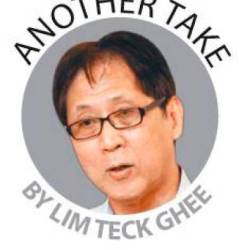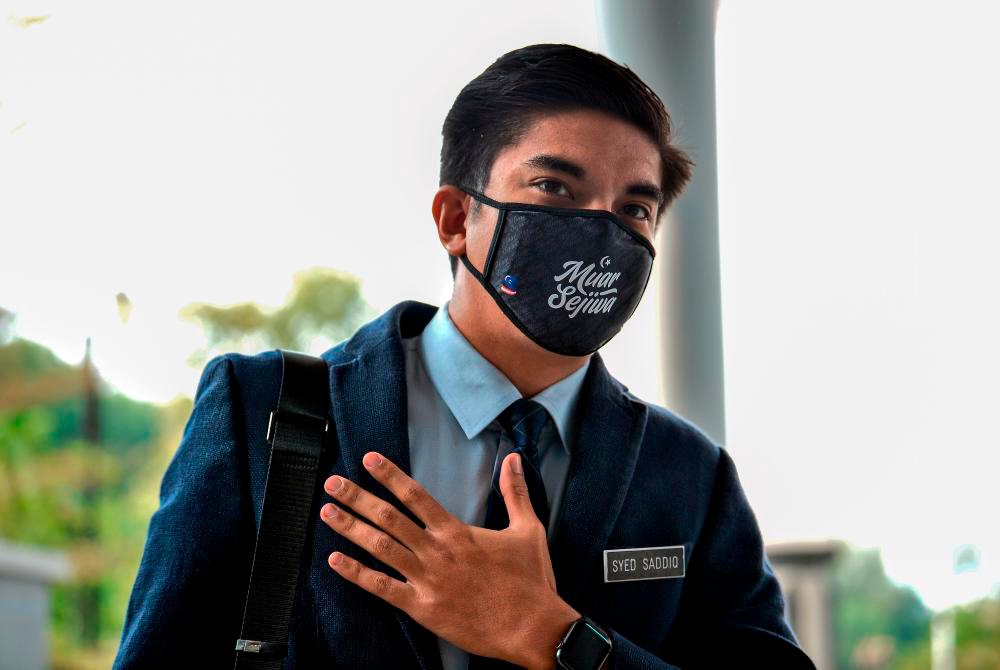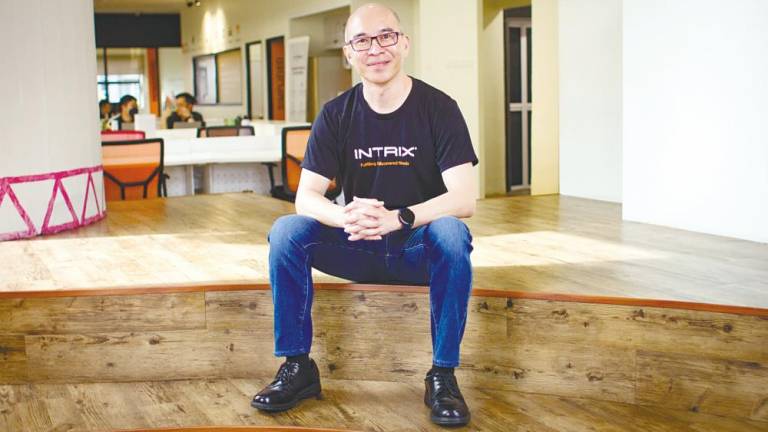THE announcement of its candidates for the 15th general election (GE15) under the Pakatan Harapan coalition banner has now brought Muda – Malaysia’s youngest political party – into the big time political fray. With only a handful of candidates contesting in the 222-seat Parliament, will the party be a footnote in the nation’s political history or can it make a difference to the
course of the nation’s political direction and future?
The first consideration which comes to mind is that its existence is very much against all odds. Set up by former Youth and Sports minister, Syed Saddiq Syed Abdul Rahman (pix), the party has survived the turmoil that has accompanied – and is still surrounding his ongoing court case – the country’s youngest Cabinet minister’s political fortune. Key also has been the party’s ability to overcome the hurdles placed in the way of its registration, which apparently were aimed at ensuring its subservience to the nation’s current political masters.
Finally registered under a court order by the Registrar of Societies as a political party in December 2021, its next step
in its political rite of passage has not been easy.
Derided by critics as a greenhorn to the rough and tumble, opportunism and self-aggrandisement that have characterised Malaysia’s politics, it has also been portrayed as a disruptive factor. This is because it has professed politics aimed at racially-inclusive and policy-driven governance.
With its leadership composed of professionals with little or no political background or experience and bringing into the country’s politics a less compromised and more idealistic brand, many doubters have predicted a short life span for the party.
Today, Muda has been put to contest in some of the strongest government held seats in the country. Running against ministers and deputy ministers, it is a baptism of fire not only for Muda’s young candidates but is also one which the neophyte party is being put through. Some observers are of the opinion that it is being put to the sword, whether intentionally or unintentionally.
What can Muda bring to the nation’s politics?
Despite selecting Muda candidates to contest in what some observers
regard as unwinnable constituencies, Pakatan’s leaders also appear to recognise the potential that Muda can bring to the larger Pakatan camp.
Although a smallish party, with only 90,000 mainly young members, its supporters are found in all the states. Clearly, it can have a multiplier effect
on the election, well beyond its numerical size.
Muda can help the larger coalition reach the younger voters in constituencies where its candidates are not standing. Apart from its influence in attracting the youth vote, seen as a possible game changer in GE15, Muda – with its more social media savvy operations – can help Pakatan reach out to the larger household and rural vote. The party’s clout as a political force to reckon with can also extend beyond GE15 to the next GE and the more distant future.
Whether Muda wins or loses in the seats they are contesting in GE15, the party’s leaders should realise that the political journey for them is just beginning. Knocking on doors, wooing voters, negotiating with coalition partners, managing the divisions and ego and turf battles that are part of every political organisation is the easier part.
Much harder is dismantling the country’s race and religious based political system and its accompanying patronage, ethno-nationalist and crony-ridden chains that Pakatan was not able to break free from during its brief spell of government.
Can Muda stay true to its mission?
The biggest challenge for Muda, apart from surviving GE15, is in living up to and staying true to its mission aimed at the establishment of a Bangsa Malaysia with equal citizenship – a mission which all political parties have failed to successfully promote. This mission can begin with Muda being the beachhead of a single multiracial party emerging from GE15.
What has been missing from Malaysia’s political development is the emergence of non-racial and non-religious parties, unlike that in many other countries.
Class based, political ideology based, region based parties or issue based, such as environment parties have been the norm in modern political systems.
Malaysia’s political development, emphasising racial parties, can be regarded not only as an outlier but
also as an aberration in the normal evolution of modern and progressive political systems.
Muda has the opportunity to introduce to Pakatan this long overdue non-racial approach, with component parties in the coalition dissolving themselves to set up a new single multi-racial party.
This development can be facilitated by reforms to the present electoral delineation system, which has discriminated against urban voters by a factor of at least six times.
Beginning in earnest after May 1969, this gerrymandering, which was initially undertaken to ensure racial dominance by favouring the rural electorate, has been a prime building block for the
toxic mix of racial and religious politics and political leadership found in the country.
Today, even with Malay urban voters now equal to or outnumbering non-Malay voters, the case for rural bias in electoral boundary setting is still insisted upon by the political forces that have abused the rural bias justification in electoral politics.
If Muda – in keeping with its good governance policy-driven manifesto – can help bring about this change in election gerrymandering and malapportionment to bring about a truly “one person, one vote system”, this may well be the first pebble it can cast into the foetid pool of Malaysia’s politics.
Lim Teck Ghee’s Another Take is aimed at demystifying social orthodoxy. Comments: letters@thesundaily.com















